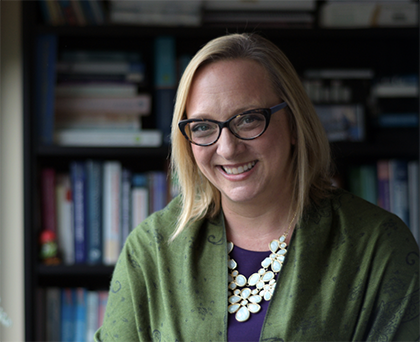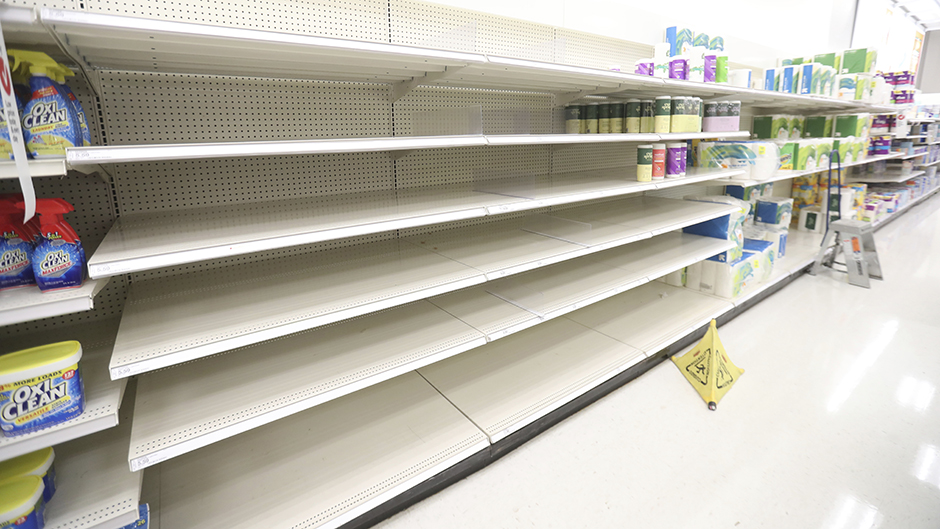In addition to death and taxes, the other certainty of life is its uncertainty.
As anxiety expert Jill Ehrenreich-May, Ph.D., a University of Miami professor of psychology, has been telling clients lately, “There is no guarantee when you go out in the morning that you’re coming home again. That’s just the truth about life. So, recognize that there is a lot of uncertainty in life in general.”
Rarely, though, has that truism been as in your face, shouting in your ears, blaring like an incessant alarm, as it has been while the novel COVID-19 coronavirus continues its unrelenting trek around the world and to our backyard.
In just the past 48 hours, the World Health Organization declared the outbreak that has infected at least 134,000 people and killed nearly 5,000 a pandemic. Italy locked down the entire nation. The National Guard arrived in New Rochelle to establish a COVID-19 containment zone north of New York City. The NBA, Major League Baseball, and most other professional sports leagues suspended their seasons—while the NCAA cancelled collegiate basketball’s March Madness championship and baseball’s College World Series. Broadway, Disneyland, Disney World, and Universal Studios shut down. Our president halted most air travel from Europe into the United States. Health officials confirmed the first COVID-19 case in Miami-Dade, and the county mayor declared a state of emergency.
Then, today, a day after the University extended this week’s spring break until March 23, with classes resuming only online through at least April 4, most University of Miami employees are working from home, as a test run for working remotely in the future.

So, it’s perfectly natural, Ehrenreich-May said, for us to feel anxious and fearful in the face of such unrelenting, escalating uncertainty. Not just about our personal health and that of our loved ones, but about how much our lives are going to be disrupted. How do we possibly plan for and cope with that?
Ehrenreich-May, the director of the Department of Psychology’s Child and Adolescent Mood and Anxiety Treatment program in the College of Arts and Sciences, answers five questions to help us navigate these uncertain times.
What are strategies for planning and coping with so much uncertainty?
The possible downstream impacts of COVID-19 are so broad and unclear in scope that it is hard for anyone to really imagine what the immediate future, or two weeks, or four weeks from now, is actually going to look like. I think we’re all struggling with that, particularly those of us who are anxious and tend to focus on the worst-case scenario. A healthy way of adapting right now is to see that there is a range of possibilities and, while you want to have some idea how you might cope with a more negative outcome, realize that it is not the only possible outcome. Be mindful of the present moment, and try to enjoy that as much as you can. Empathize with those who might be struggling with their fears about this right now. If you are able, use facts to assess the likelihood of an immediate threat and if it’s low, proceed with what you do—as long as it doesn’t violate public directives. Follow the CDC, Department of Health, and University guidelines, but be careful and thoughtful about excessively checking those sources or taking more precautions than recommended for your personal situation. If there is clear information about the danger, follow that information, but focus on information from verifiable sources, as opposed to unverifiable sources, like we often see on social media.
Why is it so important to remember that life is always uncertain, albeit not usually as blatantly obvious as right now?
The more that we lean into accepting there is always a certain amount of uncertainty in just living, the better off we are. That helps us manage threats like COVID-19, and the overactions that we’re sometimes seeing, like buying 100 rolls of toilet paper. With this idea in mind, try to live in the present. Try your best, as long as public health or other regulations do not impair your daily routine, to stay the course as much as is appropriate, given those directives. Even if it means staying the course a little farther away from other people right now. It can be a lifelong task to accept uncertainty and live well in the present, but it is possible. This is a challenge, but it can be a challenge that people can use in a healthy way.
You mentioned going overboard. Does self-quarantining because you’re afraid of getting sick or buying the entire stock of hand sanitizers help us cope?
Even people who are understandably a little anxious about this are engaging in behaviors we see from people who are chronically anxious, which are things like overprotection of self and others, over handwashing, and over-isolating. But from years and years of research about anxiety, we know that those behaviors don’t actually make you feel better long-term. Temporarily, they reduce your anxiety, but eventually they lead to more anxiety because the over-doing behaviors may not make you feel effective in actually eliminating the threat. As a result, you always feel like you need to do more and more to protect yourself. Not to say all of these protective actions are the wrong thing right now, but they may not always make you feel better emotionally. I think it is also important to still be mindful of when you are going overboard, for yourself and in recognition of the public health implications. There is potentially a lot of stress coming to our public health system and hospitals, so we all need to be mindful not only of not infecting other people, but also of people with limited resources who won’t have access to medical supplies or masks or other self-care resources that we will need to share if there is an even larger-scale problem.
What about our children? Are they paying too much attention to coronavirus?
Nobody can avoid it at the moment, but parents should manage their own news media consumption and curate that information to their children in a “kid-friendly” way. Don’t just leave CNN playing in the living room with the constant banner of the coronavirus threat because that may even further exaggerate the threat to your children, who are not necessarily going to have the ability to temper that with other factual information. As adults, you can choose what you do with that information. You can choose how you are going to live your life. Kids don’t have as much control. So, as a parent you may feel this need to over-control, and that’s completely understandable in this moment; even though this virus doesn’t seem to impact children’s health quite as much. But does that information need to be shared in depth? Or is the information that needs to be shared more about, “Let’s be sure we’re washing our hands and not picking our nose”—things that children can digest more effectively without the larger threat rationale.
How do we ease our children’s anxiety over the growing uncertainties of the COVID-19—especially when we’re anxious?
Don’t promise total safety or security to your children that you cannot guarantee. Stick to the facts you know. As I mentioned, tolerating uncertainty is an important skill to learn, so validate that it’s okay, normal, to feel anxious. If you can, model an effective response to anxiety: “When I feel that way I talk to X,” or “I do Y.” If they’re worried about a specific person, express empathy to your child and try to help them channel their anxiety into a helpful behavior or act of appreciation. If they need reassurance, try to keep it short and sweet: “Doctors and scientists are working on solutions.” We are all anxious in this moment, but you can make this a teachable moment to your children about how to cope well with their distress.

